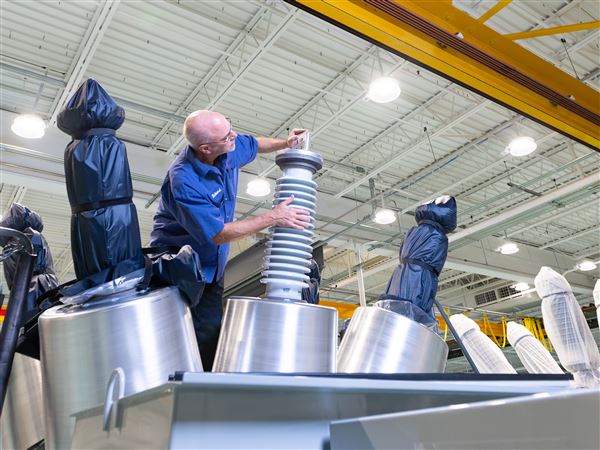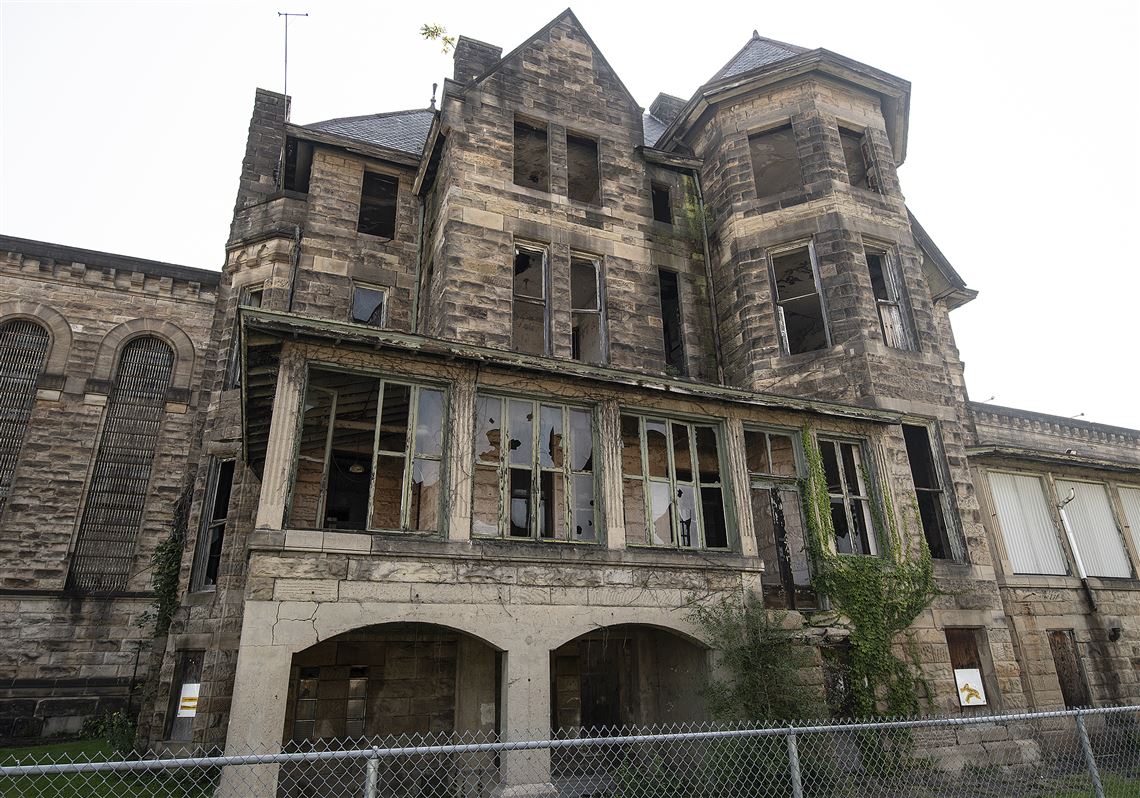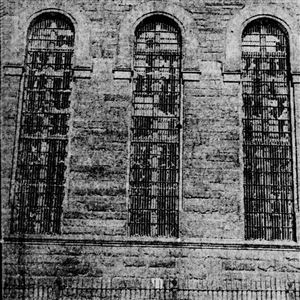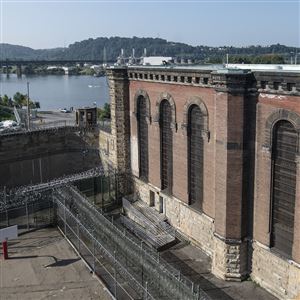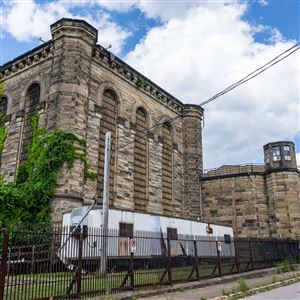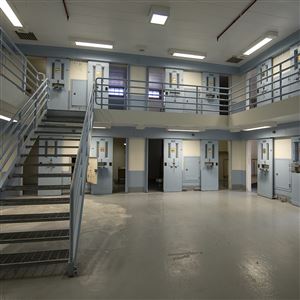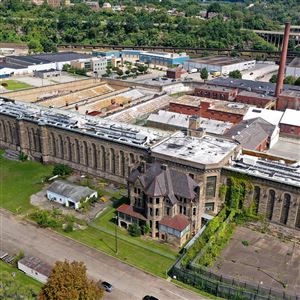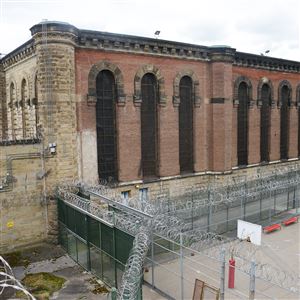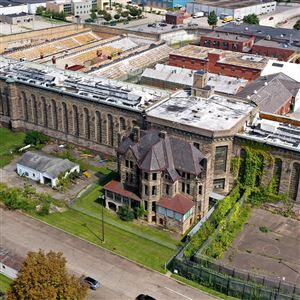This is one prison where the inmates would have the keys.
Tom Tripoli wants to turn the former State Correctional Institution Pittsburgh on the North Side into a jail-centric hotel or hostel, while converting the old prison yard into a park for recreational vehicles.
A retired developer, Mr. Tripoli has launched a bid to save part of the old prison from the wrecking ball after a report by Michael Baker International recommended last summer that all 42 buildings at the site, including the main penitentiary, be demolished and the property cleared for an industrial reuse.
Mr. Tripoli wants to keep the warden’s house, the original penitentiary and the yard behind it. He envisions transforming the buildings into a hotel or a hostel for those who want to slumber behind bars.
“I think they are the most salient and magnificent pieces of architecture on the site that could really be a tourist attraction and could be transferred for other uses,” he said.
He has dubbed his proposal the “West Penn Castle.” He believes original prison cells could be converted into hotel suites “with historic finishes to maintain the atmosphere of the former facility” at a site also known as Western Penitentiary, or Western Pen.
“The West Penn Castle has the potential to be converted into a historic hospitality haven that could provide tourists and guests with services currently not available in our city,” he stated in a summary of his plan.
Mr. Tripoli said prisons in Australia, Germany and England as well as one in Boston, Mass., are among those that have been transformed into hotels.
Saving the warden’s house and original penitentiary, he argued, would also help to keep the film industry at the site, where the facilities have been used for a variety of productions, including “Mayor of Kingstown.” Should the state follow through with the Michael Baker recommendation to demolish the prison and related buildings, it would bring an end to the film work at the site, as the consultant acknowledged in its report.
The other key element of Mr. Tripoli’s proposal is to turn the former prison yard into an RV Park. He estimated the site could hold more than 100 such vehicles and “add enviable, important, inner city hospitality services and benefits to Pittsburgh.” Other cities such as New York, San Francisco, Austin, New Orleans, Nashville, Las Vegas, Cleveland, and Los Angeles have RV parks within city limits, he said.
“I would like Pittsburgh to catch up with them,” he said. “It would bring an element of tourism into the city that we don’t have right now.”
He has some knowledge of the subject since he owns an RV resort in Florida.
But Mr. Tripoli may be facing daunting odds in his campaign to save the structures.
In its report, Michael Baker deemed demolishing the prison structures and repurposing the 21.7-acre site for industrial reuse the most viable of three options it considered in trying to determine the highest and best use for the property.
One of the other options it looked at was maintaining the main penitentiary building, the North Wall and guard stations 1 and 2. But that idea was deemed as “not feasible” absent a long-term agreement with the film industry for use of the penitentiary building.
The city also supports the idea of razing the structures at a cost of $44 million and making the site development ready. In its report, Michael Baker stated that representatives of the Marshall-Shadeland neighborhood where the prison is located likewise “voiced strong opposition to retaining any portion of the facility, which left standing would serve as a continuing remainder of its negative emotional legacy and social injustice.”
Mr. Tripoli said he has reached out to the state Department of General Services, which is overseeing the property, Michael Baker, the mayor and Allegheny County executive offices, and North Side neighborhood groups, all without much success.
He said he was told by general services officials that the department is moving in the direction that Michael Baker “has anointed” — clearing the site for industrial reuse. A general services spokesperson did not respond to a Post-Gazette inquiry Monday.
But Mr. Tripoli, who served on the Pittsburgh History and Landmarks Foundation board, is still hoping to get the sentence of demolition commuted. He plans to set up a website to gather support for saving the buildings. From a historical and architectural standpoint, they are “significant and of such size” that they are worth keeping, he maintained.
“The fact that they could be transformed into very serviceable units for the area in terms of hosting and attracting tourists, which would spawn other businesses, it should definitely be considered,” he said.
The proposal to demolish all of the structures could also run afoul with other preservationists who see historic significance in the buildings. The site itself is listed as a historic district on the National Register of Historic Places. Included in the nomination were 24 buildings, including the main penitentiary.
The Pittsburgh History and Landmarks Foundation has described the warden’s residence as “very important” and lobbied for a new use for the original stone cell block building and the saving of a section of cells.
However, state Sen. Wayne Fontana, D-Brookline, whose district includes the prison, said Mr. Tripoli most likely will have a hard time convincing the state Department of General Services to change its mind regarding the proposed demolition.
“The only way that gets stopped is if the community wants it stopped. Maybe DGS would listen then,” he said.
Mr. Fontana said his understanding is that it will take the state until 2027 to demolish the structures and remediate the site. It then may release a request for proposals for possible reuses. He noted that Mr. Tripoli could submit an application, but by then all of the buildings would be gone.
Part of the problem with keeping part of the site for filming, Mr. Fontana added, is that the film industry has so far refused to make a long-term commitment to using the property.
Mr. Tripoli said he tried to reach out to Paramount to gauge its interest but got no response.
Nonetheless, as someone who has redeveloped properties and did historic restoration work on the South Side, he believes his plan has potential. And he is asking others who are interested in joining him in trying to save the buildings to email him at savethecastlepgh@gmail.com.
“It’s such a great monument to the city that it shouldn’t be destroyed,” he said of the prison.
Mark Belko: mbelko@post-gazette.com
First Published: October 24, 2023, 9:30 a.m.
Updated: October 24, 2023, 6:43 p.m.

